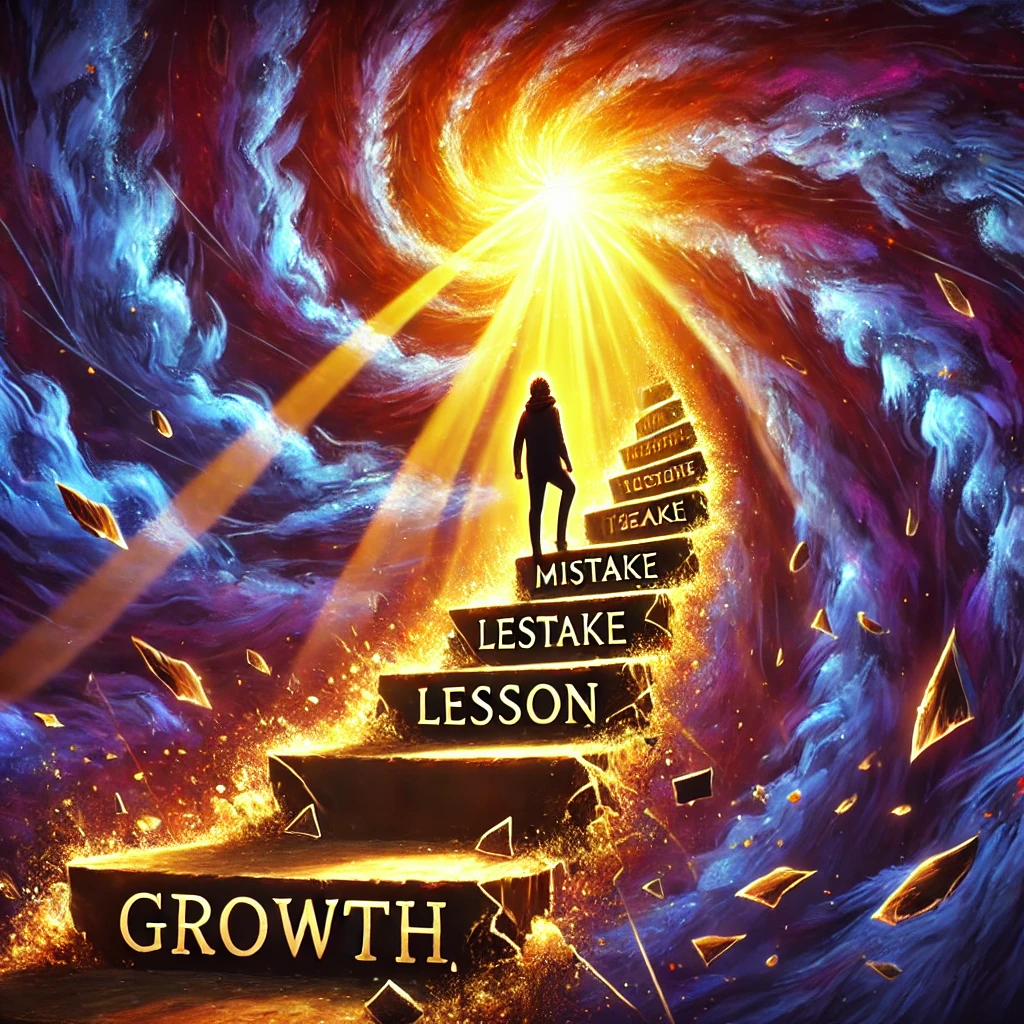Loading advertisement...
24-01-2025

Why Making Mistakes Helps You Learn Better
Mistakes are often viewed as failures, but what if they’re actually the key to learning better and faster? In a world that prizes perfection, it’s easy to forget that behind every great success story lies a trail of missteps and lessons learned. Let’s explore why making mistakes isn’t just okay—it’s essential for growth.
The Psychology of Mistakes: How They Rewire Your Brain
When you make a mistake, your brain doesn’t just register the error and move on. Instead, it shifts into problem-solving mode, actively analyzing what went wrong and why. This process strengthens neural pathways and fosters a deeper understanding of the task at hand. Studies in neuroscience have shown that the brain is more engaged when correcting errors than when completing a task flawlessly. In short, mistakes literally make you think harder.
Mistakes Foster Resilience and Adaptability
Making mistakes helps you build resilience—the ability to bounce back from setbacks. Each misstep becomes an opportunity to adapt and try again, making you more flexible and resourceful over time. Whether it’s learning a new skill or navigating a challenging situation, mistakes prepare you to handle future challenges with confidence and creativity.
Learning by Doing: Why Experience Matters
Hands-on experience is one of the most effective ways to learn, and mistakes are an inevitable part of the process. When you try, fail, and try again, you gain insights that no textbook or lecture can provide. Mistakes turn abstract concepts into tangible lessons, allowing you to retain information more effectively.
The Growth Mindset: Embracing Mistakes as Opportunities
Adopting a growth mindset—the belief that abilities can be developed through effort and learning—is crucial to making the most of your mistakes. Instead of seeing errors as evidence of incompetence, view them as opportunities to grow and improve. This mindset not only enhances your learning but also boosts your confidence and motivation.
Famous Failures: Learning from the Best
History is full of examples of successful people who turned their mistakes into stepping stones for greatness:
Thomas Edison: When inventing the light bulb, Edison famously said, “I have not failed. I've just found 10,000 ways that won't work.” His persistence and willingness to learn from mistakes paved the way for one of the most important inventions in history.
J.K. Rowling: Before the world fell in love with Harry Potter, Rowling faced multiple rejections from publishers. Her setbacks didn’t stop her; instead, they fueled her determination to succeed.
Michael Jordan: Widely regarded as one of the greatest basketball players of all time, Jordan once said, “I've missed more than 9,000 shots in my career. I've lost almost 300 games. … And that is why I succeed.”
How to Learn from Your Mistakes
Acknowledge the Mistake: Own up to what went wrong without self-judgment. Avoid the blame game and focus on understanding the issue.
Analyze the Error: Reflect on why the mistake happened. Was it due to a lack of preparation, misunderstanding, or external factors?
Identify the Lesson: Pinpoint what you can learn from the experience. How can you apply this lesson moving forward?
Take Action: Use what you’ve learned to improve and try again. Growth happens when you apply lessons to real-life situations.
Stay Positive: Remember, every mistake is an opportunity to grow. Focus on progress, not perfection.
Final Thoughts
Mistakes are not the end of the road—they’re a vital part of the journey. Each misstep brings you closer to understanding, mastery, and success. So, the next time you stumble, don’t be afraid to embrace the fall. It might just be the best lesson you’ve ever learned.